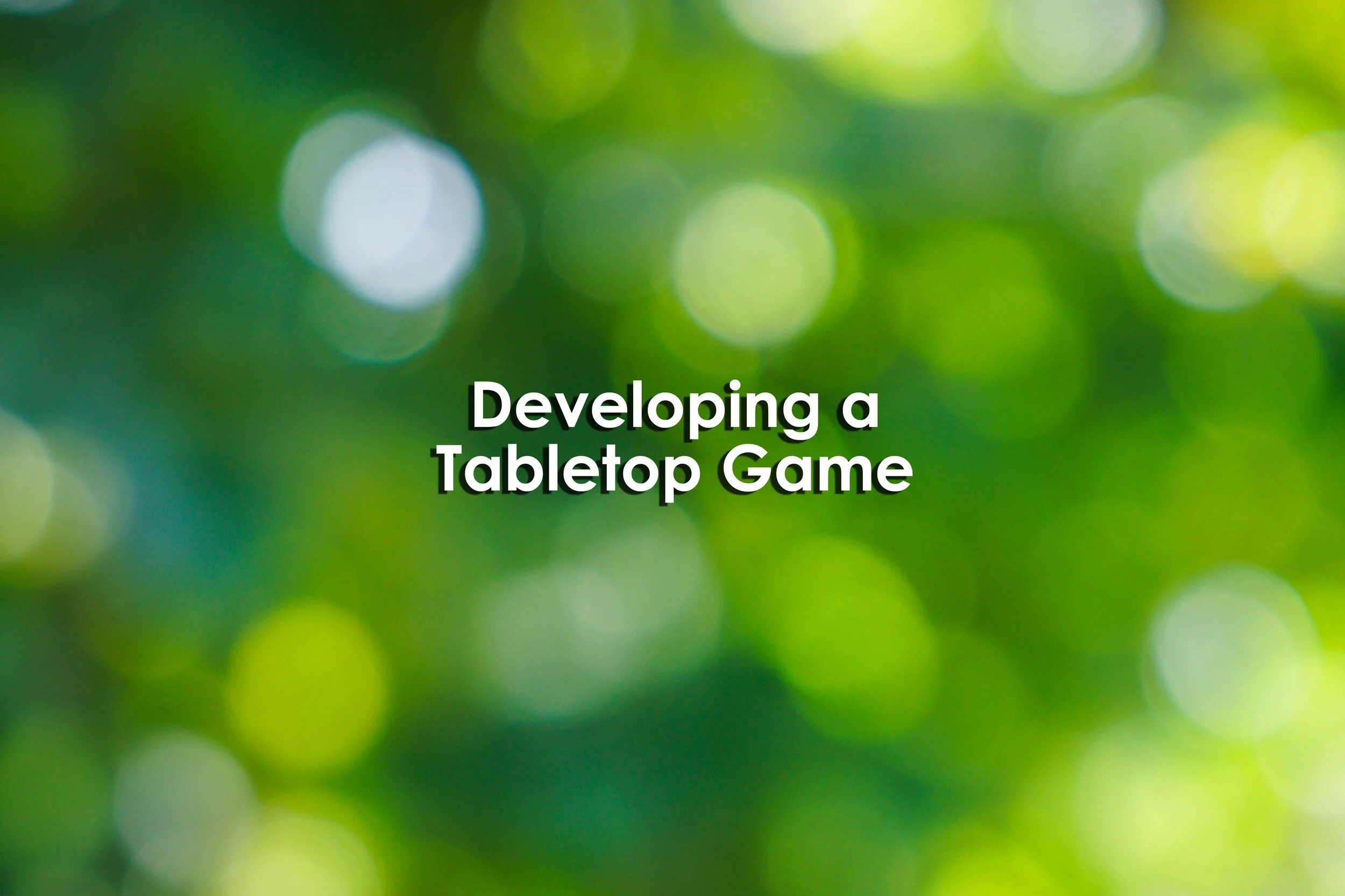Developing a Tabletop Game
Developing a Tabletop Game
Developing a Tabletop Game
By Cliff Kamarga
November 10, 2020
Summary
Conceiving an Idea So, what kind of game should you make? Well, there are a few ways for you to approach this part of the development process and it starts by asking yourself "What is the purpose of my game?" a. Do you want to give players an experience? b. Are you filling a hole in the market? c. Are you modifying an existing game? d. Are you showcasing a new or interesting mechanic? a. Do you want to give players an experience? This approach is about using theme as the core idea for your game.
c. Are you modifying an existing game? Now, this can branch off into two paths - fixing a game or improving a game.
What I'm referring to are those times when players say things like: "This game is too complicated/convoluted." "This game is too long/short." "This game is boring." "I wish there was more to this game." "I wish this game can be played by more players." "Wouldn't it be awesome if..." When you hear things like this, take note of why people are saying this.
Designing the Game Once you have decided on a game idea, it's time to design it.
If you are developing a game for players to experience a theme, then use the theme to help with setting the game's design pillars as well as the game's rules and mechanics.
e. Whenever a player loses, do they blame the game or themselves? Whether it's a tabletop game or a video game, ideally a player should blame themselves whenever they lose... not the game.
The purpose of this stage is to check things such as the following: Does your mechanics synergize with each other and serve your game's overall purpose? Is your game too short or too long for what it is? Are the players experiencing what you want them to experience? Is your game conforming to your design pillars? b. Balancing.
Creating the Rulebook The rulebook is the most important part of your game because without it, players will not be able to play your game the way you intended.
Since each rulebook will be vastly different from game to game, below are some general advice and guidelines: Explain the goal of the game as early as possible, preferably after the game setup.
If players know what the objective of the game is, then as you explain the rules of the game, they will be able to see the significance of each rule, component, and mechanic in the game.
Reference
Kamarga, C. (2020, November 10). Developing a Tabletop Game. Retrieved November 16, 2020, from https://www.gamasutra.com/blogs/CliffKamarga/20201110/371076/Developing_a_Tabletop_Game.php


